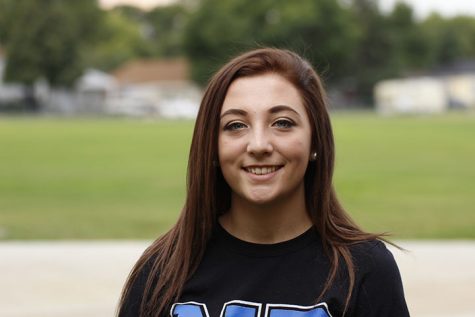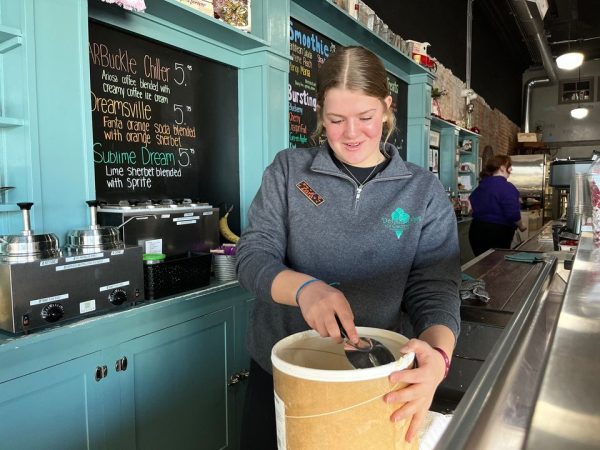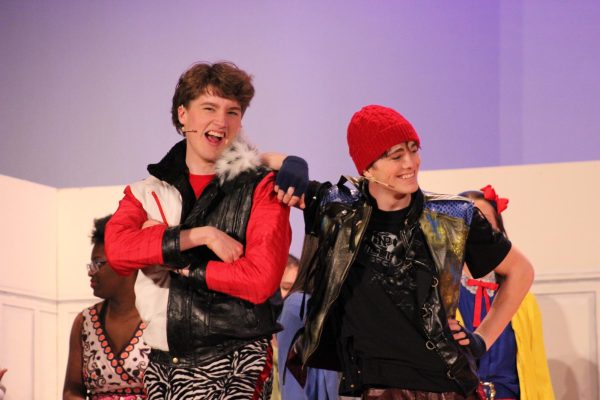Dating Abuse: The ugly truth
“When we’d hangout, I’d go home with new bruises because he’d get frustrated and grab hard, “ said sophomore Tenesha Lee. She never thought it was intentional, but after awhile she decided enough was enough. Dating violence is controlling, abusive, and aggressive behavior in a romantic relationship, according to School Resource Officer J. Johnson. He said it can include verbal, emotional, physical, or sexual abuse, or a combination. Unhealthy relationships can start early and last a lifetime. He said teens often think some behaviors, like teasing and name calling, are a “normal” part of a relationship. However, these behaviors can become abusive and develop into more serious forms of violence.
“My mother was abused when I was younger by her now, ex-husband. I had seen it when I was younger, so from then on I had never really trusted men with my family members,” said senior Kijana Owens. “How I see it, the women I’m with will never experience that.” According to Domestic Violence Roundtable, studies show that 3-4 million children under the age of 17 could be exposed to domestic violence each year.
Getting help is harder for teens than it is for adults, said Ofc. Johnson. “Generally teens tend to make relationships more complicated. A lot of that is because sociability, since teens are always around each other. When you’re an adult, it’s you and this person and some family.”
When a teen gets into a relationship they should know they have someone to turn to if anything goes bad. Sophomore Kade Wroot said it’s really sad to hear or see things like that. “If you’re dating someone, there has to be some sort of feelings there, so why would you do that?” However, Johnson said most teens don’t realize that until they’ve been put into a terrible situation. Statistics show that women who are victimized at home have a better chance of being victimized in a personal relationship.
Sometimes, guys who are verbally or physically abusive are that way because of learned behavior and how they were raised. “Someone who is in an abusive relationship often blame themselves or excuse even a single act of abuse to a one-time incident that will never happen again. The victim may justify the abuse because of stress in the relationship or in the abuser’s life, said Johnson. “These types of acts, in any relationship, shall never be tolerated. No one has the right to treat you like this.”
Relationship abuse doesn’t just happen in made-for-TV movies. It happens in our own school. “When I was dating this kid, we would hang out. But [it] felt like every time I would go home, [I would have a new] bruise or mark. He’d get so frustrated at something I did or said and he’d grab me really hard,” said Lee. Sophomore Zane Leibhart said, “It’s kind of despicable that someone can do that in a relationship.”
If you are someone or know of someone being abused in any form, Johnson said it’s okay to reach out for help. There are many places in town that are trained to handle situations like these. The Rape and Domestic Abuse Program (RDAP) is set up to help 24/7/365. You can reach them at their office number; 308-532-0624, or their crisis line; 308-534-3495. You can also reach out to a doctor, a teacher, a trusted adult or even Ofc. Johnson.
When a teen gets into a relationship they should know they have someone to turn to if anything goes bad. “I’m hoping that this story makes it more obvious that there
is a lot of places to seek help, whether it be a family member or someone in the community,” said Johnson.

Phoenix VanCura, class of 2018. I was the online Editor for the NP Bulldogger, I used to manage all the social media accounts. I enjoy hanging out with...



Anthony Cook • Apr 1, 2016 at 12:34 PM
I think dating abuse is wrong and shouldn’t happen. If you see a girl get hit by a man you should go help them. Don’t just sit there and watch or video tape it, go help them or tell an adult.
Jake Reed • Apr 1, 2016 at 12:29 PM
People should not feel like they have to keep this a secret. From the first strike you should immediately go tell someone, anyone.